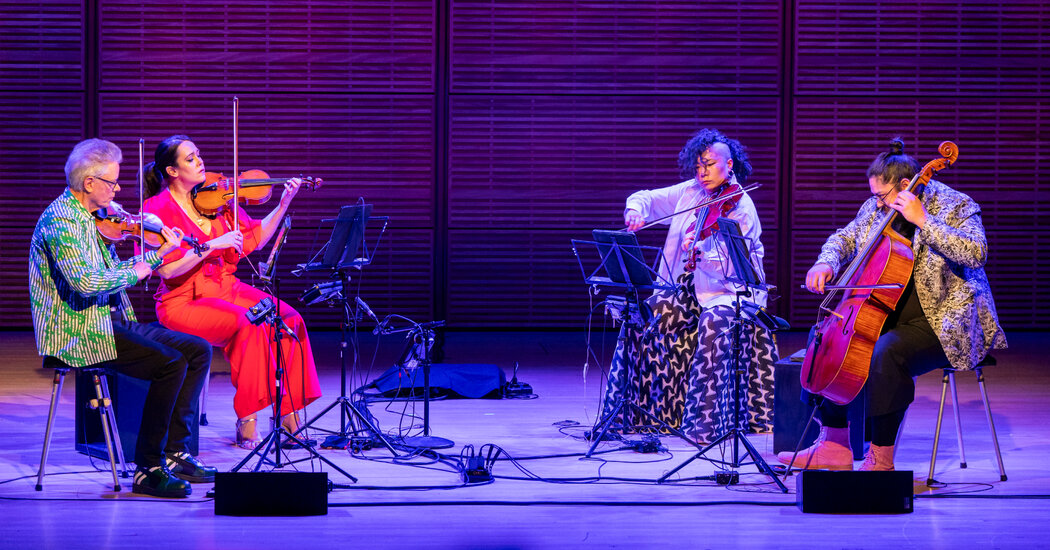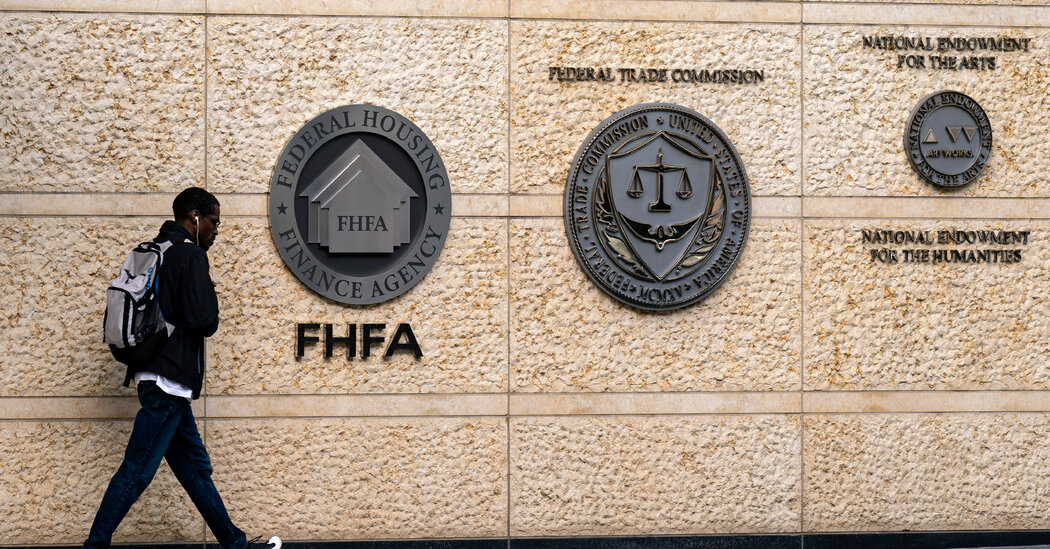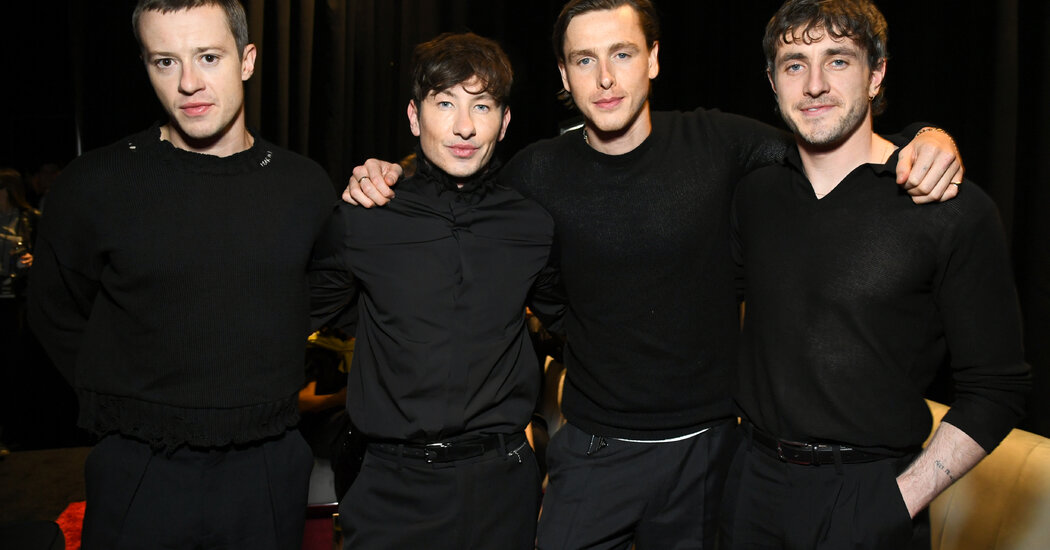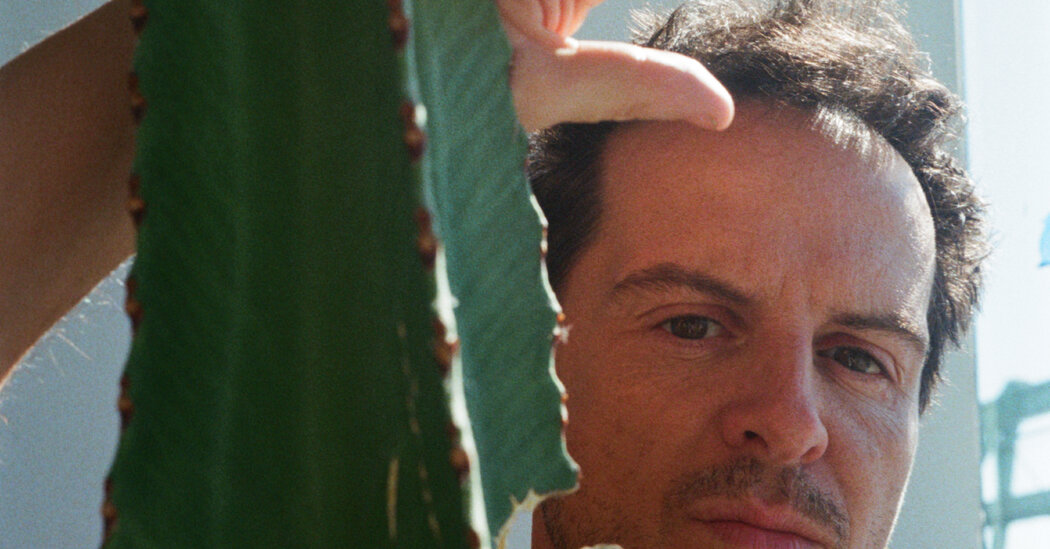The Kronos Quartet’s Eclectic Return to Zankel Hall
The renowned Kronos Quartet graced the stage of Zankel Hall on Friday evening, presenting a typically eclectic program that showcased new compositions inspired by jazz, psychedelic rock, and Nordic folk traditions. This vibrant performance marked not just the ensemble’s return to a venue that it consistently fills with devoted fans, but also felt like a significant comeback, especially with the recent infusion of three exceptionally talented new members.
Founded in 1973 by first violinist David Harrington, the Kronos Quartet has long been a pioneering force in contemporary music. However, in recent years, the aging ensemble seemed to be grappling with an identity crisis. Although the Kronos brand remained robust—thanks to ambitious commissions that continued to push the boundaries of quartet music, resulting in over 1,000 new works and arrangements across a plethora of styles—the quality of their performances had become inconsistent. Additionally, the spoken introductions provided by the players during concerts often felt routine and uninspired.
With the retirement of long-standing members John Sherba and Hank Dutt last year, there was a moment when the quartet’s future appeared uncertain. Rather than disbanding, Harrington made the bold decision to recruit fresh talent. The result of this rejuvenation was clearly evident in Friday’s performance, showcasing not only strong personalities but also a remarkable cohesion among the players. The ensemble now features the talents of violinist Gabriela Díaz and violist Ayane Kozasa, who join cellist Paul Wiancko, who came onboard in 2022.
During the kaleidoscopic first half of the concert, the two women emerged as the quartet’s emotional engines, contributing to a newly vibrant and lush sound. This was especially palpable in Aleksandra Vrebalov’s incantatory piece “Gold Came From Space,” which gradually built in sonic density and expressive intent, characterized by tremulous whispers. Kozasa’s viola frequently stole the spotlight, showcasing a captivating blend of lyricism and raw candor. Her interpretation of Jacob Garchik’s arrangement of “For All We Know” (originally composed by J. Fred Coots) exuded a tough-nosed tenderness reminiscent of Nina Simone. She also set a compelling tone for Wiancko’s arrangement of Neil Young’s protest anthem “Ohio.”
The duo performed two vibrant songs by Sun Ra, including the whimsically arranged “Outer Spaceways Incorporated” and the psychedelic “Kiss Yo’ Ass Goodbye,” arranged by Terry Riley and Sara Miyamoto. These pieces sparkled with a sense of experimental joy that has always been a hallmark of Kronos’s artistry. However, it was the heartfelt directness exhibited in Viet Cuong’s stirring composition “Next Week’s Trees”—where the quartet occasionally sounded like a giant harp—that felt particularly fresh and impactful.
The second half of the concert was dedicated to a single, expansive work: “Elja,” composed by Benedicte Maurseth and Kristine Tjogersen. Maurseth, who joined the Kronos players for this performance, is a virtuoso on the Norwegian hardanger fiddle, a unique instrument resembling a violin but featuring four additional resonating strings. Its curved neck and beautifully carved scroll evoke the bow of an ancient ship. For this 45-minute piece, which also incorporated recorded nature sounds, the Kronos musicians adapted their instruments to hardanger variations custom-built by Norwegian luthier Ottar Kasa.




